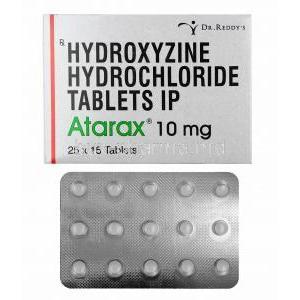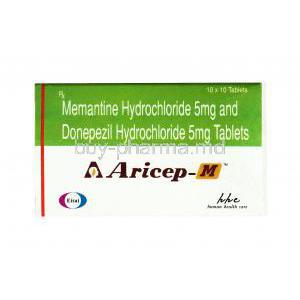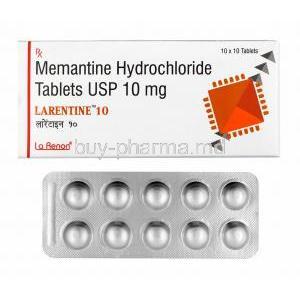Cognium
- I. Introduction
- II. Composition of Cognium
- III. How Cognium Works
- IV. Uses of Cognium
- V. Off-Label Use of Cognium
- VI. Dosage and Administration of Cognium
- VII. Common Side Effects of Cognium
- VIII. Serious Side Effects and Adverse Reactions
- IX. Drug Interactions With Cognium
- X. Warnings and Contraindications
- XI. Careful Administration of Cognium
- XII. Important Precautions When Using Cognium
- XIII. Administration to Special Populations
- XIV. Overdosage of Cognium
- XV. Storage and Handling Precautions for Cognium
- XVI. Conclusion
I. Introduction
A. Overview of Cognium
Exploring the world of improvement, Cognium shines as a ray of hope for people with cognitive decline. This incredible medication is created to strengthen memory and enhance abilities, offering a strong support system for the intricate brain network.
B. Therapeutic Classification
Cognium, classified as a nootropic, is well known for its ability to enhance the brain's functions. It is recognized in the field of pharmacology as a substance that can potentially influence the components associated with cognition.
C. Scope of the Article
This article will explore the aspects of Cognium, shedding light on its composition, how it works, and the range of clinical applications it has. This includes both approved uses. We are exploring its potential off-label uses.
II. Composition of Cognium
A. Active Ingredients
The common ingredient in all Cognium products is silk protein hydrolysate (silk fibroin or silk amino acid), which is derived from silkworm cocoons and is high in glycine and other amino acids. Cognium claims that this ingredient is clinically shown to improve memory and recall in healthy adults1.
Cognium also has other ingredients, such as Shankhapushpi, a plant that protects against oxidative stress to the nervous system, and Cognium Focus Blend, which contains green coffee bean extract, green tea extract, blueberry fruit extract, ginkgo biloba extract, phosphatidylserine, and huperzine A1.
In summary, Cognium is a brain health supplement that contains silk protein hydrolysate as its main ingredient. It also has other ingredients such as Shankhapushpi and Cognium Focus Blend1.
B. Excipients and Their Roles
In addition to the components, Cognium contains a combination of other essential substances for the effectiveness and reliability of the drug. These additional substances, although not pharmacologically active, themselves contribute significantly to how the body absorbs the drug and how stable it remains.
III. How Cognium Works
A. Mechanism of Action in Cognitive Enhancement
The way Cognium works is like a choreography of molecules carefully designed to work together with the brain's chemical processes. It improves function by influencing how the connections between brain cells can change and by supporting overall brain health.
B. Effects on Neurotransmitters and Brain Function
Cognium's effectiveness is partly attributed to its impact on neurotransmitters, which are the chemical messengers responsible for coordinating the complex processes of thinking, memory, and learning in the brain.
IV. Uses of Cognium
A. Approved Indications for Cognium
Cognium is a brain supplement that improves memory, focus, and attention. It contains Silk Protein Hydrolysate, an ingredient that has been used in traditional Asian medicine for many years and has been shown to improve memory quotient and cognitive function 1. Some of these disorders include mild cognitive impairment (MCI), Alzheimer’s disease, Parkinson’s disease, and dementia with Lewy bodies 2345.
References: 2: Mayo Clinic 3: Cleveland Clinic 1: Brain Reference 4: Medical News Today 5: National Institute on Aging
B. Cognitive Impairments and Memory Enhancement
Cognium serves as a defense against the constant struggle of memory loss, providing support for those facing cognitive impairments by improving their ability to remember and recall information.
C. Role in Age-Related Cognitive Decline
Cognium stands as a guardian in the fight against the progression of time and its impact on cognitive abilities, protecting older individuals from the gradual decline that comes with aging.
V. Off-Label Use of Cognium
A. Exploration of Non-Approved Indications
Although Cognium is widely recognized for its approved applications, clinicians frequently venture into the territory by exploring off-label uses.
B. Ethical Considerations in Off-Label Prescribing
Prescribing medications for off-label use involves navigating territory in the medical field. It requires a balance between ethical considerations and relying on evidence-based practices.
C. Evidence Base for Off-Label Cognitive Applications
Research on off-label uses for Cognium is gaining momentum, although it is still in its stages and lacks substantial evidence.
VI. Dosage and Administration of Cognium
A. Recommended Dosage for Cognitive Disorders
The healing sanctuary of Cognium can be entered by following a designed routine specifically crafted to address and treat cognitive disorders effectively.
B. Dosage Modifications for Special Populations
In the era of Cognium, groups of people are provided with a customized dosage plan meticulously adjusted to their physiological needs.
C. Administration Guidelines for Optimal Efficacy
The use of Cognium is regulated by guidelines, ensuring its maximum potential is achieved in the therapeutic environment.
VII. Common Side Effects of Cognium
A. Minor Adverse Effects and Their Management
Embarking on the enhancement journey with Cognium can sometimes come with a few bumps. While there may be minor side effects, they are usually temporary and can be effectively managed carefully.

B. Comparison with Other Cognitive Enhancers
Compared to cognitive enhancers, Cognium has relatively mild side effects, which helps establish its position, in the arsenal of pharmacotherapy.
VIII. Serious Side Effects and Adverse Reactions
A. Identification and Management
Although serious side effects are rare, it is crucial to address them and develop a strategic approach to manage and minimize their impact.
B. Reporting Serious Side Effects
It is essential to emphasize the need for reporting adverse effects. This is crucial for the monitoring of drug safety and ensuring the well-being of future patients.
IX. Drug Interactions With Cognium
A. Common Drug Interactions and Consequences
The combination of Cognium with medications can result in various unexpected outcomes. Healthcare professionals need to remain cautious when prescribing Cognium alongside anticoagulants, as this may potentially increase the risk of bleeding. Additionally, if Cognium is taken together with substances that depress the central nervous system, it could lead to enhanced sedation effects, potentially compromising alertness and attentiveness.
B. Mechanisms of Drug-Drug Interactions
The biochemical processes that contribute to drug-drug interactions with Cognium are complex. These interactions involve factors such as the inhibition or activation of cytochrome P450 enzyme's competition for binding sites on proteins and the influence on drug transporters.
X. Warnings and Contraindications
A. Absolute Contraindications for Cognium Use
It is essential to avoid using Cognium if patients are sensitive to its ingredients. Additionally, uncontrolled hypertension is a reason not to use it, as it increases the risk of cerebrovascular events.
B. Conditional Risks and Usage Cautions
It is advisable to exercise caution when prescribing Cognium to individuals who have a history of seizure disorders or who are taking medications that can potentially lower the seizure threshold.
XI. Careful Administration of Cognium
A. Special Monitoring for At-Risk Populations
People who are at risk of experiencing heart problems, like those with a tendency for cardiac events, should be closely monitored while undergoing Cognium therapy. It may be advisable to assess their heart health to prevent worsening underlying conditions.
B. Dose Adjustments and Clinical Judgement
Adjusting the dosage is usually a sign of ensuring a treatment plan with Cognium. It's essential to consider both the expertise and the unique characteristics of each patient when determining how to adjust the doses.
XII. Important Precautions When Using Cognium
A. Safety Measures for Long-Term Use
To ensure the safety of long-term Cognium administration, it is essential to assess cognitive function and monitor kidney and liver health for any potential issues. This helps detect any problems before they become serious.
B. Precautions for Minimizing Adverse Effects
To reduce impacts, it is advisable to start treatment with the smallest dose possible and then gradually increase it. This approach enables the body's central nervous system to adapt to the medication over time.
XIII. Administration to Special Populations
A. Administration to Elderly Patients
Dosage Considerations: It may be necessary to adjust the dosage for patients because their physiological reserves decline, and they often have other health conditions. Safety and Efficacy Profile: The therapeutic window is usually narrower in individuals, so it's crucial to be vigilant when determining the appropriate dosage.
B. Administration to Pregnant Women and Nursing Mothers
Considering the risks and benefits, It is crucial to thoroughly assess the risk-benefit balance before prescribing Cognium to this particular group of individuals. Regarding guidelines and recommendations, Due to the limited availability of clinical data, it is advisable to define Cognium during pregnancy or while breastfeeding only if the potential benefits outweigh any possible risks to the unborn child or nursing infant.
C. Administration to Children
When using Cognium in patients, it is crucial to exercise caution and carefully adjust the dosage as needed. Since the safety of Cognium in children has not been extensively studied, it is generally not recommended for use in this population.
XIV. Overdosage of Cognium
A. Symptoms and Immediate Actions
Excessive intake of Cognium may result in the worsening of its side effects. If this happens, it is essential to stop taking the medication and focus on managing symptoms. This may involve ensuring that the airway remains clear and maintaining blood flow throughout the body.

B. Treatment Protocols for Overdose
Treatment plans for overdose typically involve medical evaluation and can include measures like gastric lavage or giving activated charcoal to reduce the body's absorption of the substance ingested.
XV. Storage and Handling Precautions for Cognium
A. Storage Conditions for Maintaining Drug Efficacy
Cognium should be kept at room temperature and protected from light and moisture to maintain its effectiveness as a medication.
B. Proper Handling to Prevent Contamination
It is crucial to follow procedures to prevent contamination. Healthcare providers are advised to handle Cognium cautiously, ensuring that the medication remains intact from when it's dispensed until it is administered.
XVI. Conclusion
A. Summary of Cognium’s Clinical Profile
In summary, Cognium holds potential in the field of improvement. However, its effectiveness relies on following the recommended dosage instructions, being mindful of interactions with other medications, and taking into account any contraindications or precautions that may apply.
B. Future Directions in Cognitive Enhancement Therapy
Cognitive enhancement therapy is steady. Cognium is leading the way. Ongoing research and post-market monitoring will play a role in shaping how it is used in clinical settings, potentially broadening the possibilities of cognitive treatments.


















